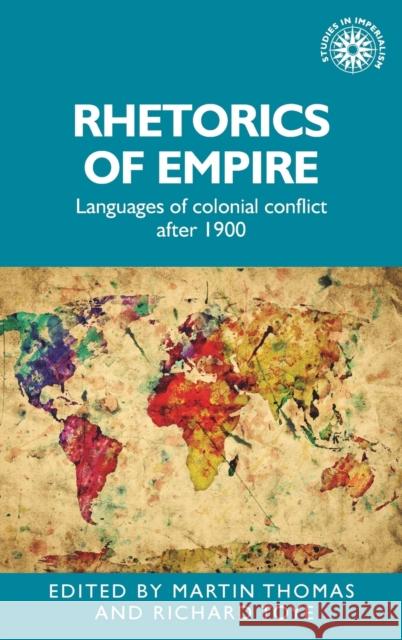Rhetorics of Empire: Languages of Colonial Conflict After 1900 » książka
Rhetorics of Empire: Languages of Colonial Conflict After 1900
ISBN-13: 9781526120489 / Angielski / Twarda / 2017 / 272 str.
Stirring language and appeals to collective action were integral to the battles fought to defend empires and to destroy them. This collection explores the rhetoric relating to empire and imperialism in a wide variety of geographic, political, social and cultural contexts.
Why did imperialist language remain so pervasive in Britain, France and elsewhere throughout much of the twentieth century? What rhetorical devices did political and military leaders, administrators, investors and lobbyists use to justify colonial domination before domestic and foreign audiences? And how far did their colonial opponents mobilize a different rhetoric of rights and freedoms to challenge imperialist discourse? These questions are at the heart of this collection, which presents original essays from twelve contributors, plus an introductory analysis of the empire rhetoric phenomenon.
Chapters investigate the place of imperialist rhetoric in the history of empire throughout the twentieth century. Issues examined include discourses of imperialist modernization, and the language of colonial 'civilizing', as well as the rhetorical justifications advanced for violent colonial practices. Essays range from the embittered rhetoric of the South African War and Theodore Roosevelt's articulation of American imperialism in the early 1900s to the rhetorical battles surrounding European decolonization in the late twentieth century. The volume thus offers insights into the distinctive traits of differing European and American imperial rhetoric and traces their imprint in domestic politics and culture. Addressing anti-imperial campaigns as well as the discourses of imperial assertion used by politicians, administrators, and settlers, the collection highlights the importance of rhetoric as a form of contestation in the politics of empire.











